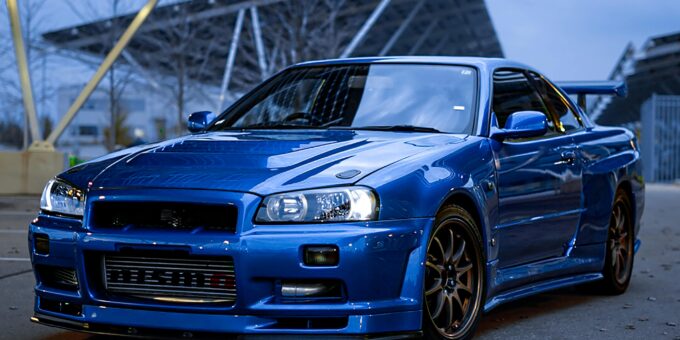
Luxury cars have long stood as the ultimate expression of innovation, comfort, and prestige. Traditionally, a luxury automobile was defined by its craftsmanship—hand-stitched leather seats, meticulous detailing, and cutting-edge mechanical engineering. Today, however, the definition of luxury is shifting. Artificial intelligence (AI) is now reshaping the industry by combining elegance with intelligence, creating vehicles that think, learn, and respond.
AI is not just an accessory; it’s a transformative force. For example, systems like Mercedes-Benz’s MBUX and Tesla’s Autopilot illustrate how AI transforms cars into intuitive companions. Beyond driving, AI enhances design, safety, sustainability, and personalization. Customers no longer seek just horsepower or plush interiors; they expect their cars to predict their moods, guide them through traffic seamlessly, and deliver entertainment tailored to their tastes.
The integration of AI into luxury cars is a natural evolution of the industry. As consumer expectations rise, automakers must continuously push boundaries. The fusion of human luxury with machine intelligence redefines automotive prestige, ensuring that cars remain not only status symbols but also future-ready mobility solutions.
The Future of Luxury Cars with AI
The luxury car market is no longer defined by horsepower alone—it’s increasingly about intelligence. As AI technologies mature, they’re becoming the most significant differentiator in the automotive space. Features such as self-learning navigation systems, emotion-aware interiors, and predictive maintenance are setting new benchmarks.
Luxury car buyers are not ordinary consumers; they are visionaries who want their vehicles to be ahead of the curve. These customers value exclusivity, which is why they are drawn to AI-driven innovations that make their driving experience unique. For instance, an AI-powered cabin that detects a driver’s stress levels and adjusts lighting and music accordingly elevates the sense of luxury beyond material comfort.
AI also influences the perception of safety. In the future, luxury vehicles will be equipped with autonomous driving technologies that go beyond lane-keeping or adaptive cruise control. These cars will anticipate hazards in real time, learning from billions of data points collected from road networks and weather conditions. The future luxury car is not just smarter—it’s a guardian.
Moreover, the shift toward sustainable luxury also depends heavily on AI. With electric luxury cars entering the mainstream, AI optimizes energy use, extends battery life, and ensures smooth integration with renewable energy grids. In essence, AI is the invisible force shaping not only how luxury cars function but also how they embody prestige in a connected, sustainable world.
AI-Powered Design in Luxury Cars
One of the most exciting transformations AI brings is in car design. Traditionally, designing a luxury car required years of expertise, countless prototypes, and manual iterations. Now, AI accelerates this process with generative design tools that create multiple concepts in seconds. Designers can feed parameters like aerodynamics, comfort, and material preferences into AI systems, which then suggest innovative designs that would otherwise take months to conceptualize.
Luxury carmakers are already leveraging these AI design insights. For instance, Bentley and Rolls-Royce use AI-assisted tools to refine aerodynamics without compromising aesthetics. Imagine a car exterior that not only looks sleek but also reduces drag, improves efficiency, and enhances speed—all optimized by AI algorithms.
Inside the cabin, AI enables personalization at an unprecedented level. By analyzing driver data, including posture, seating preferences, and climate control history, AI systems propose interior layouts that feel tailor-made. It’s no longer about one-size-fits-all luxury; it’s about micro-customization. A vehicle can adjust the seat curvature, ambient lighting, and even scent based on the driver’s mood.
Furthermore, AI transforms luxury concept cars into reality. What was once a futuristic vision is now a practical prototype. Carmakers can predict customer preferences with AI-powered surveys and sentiment analysis before finalizing designs. This reduces risk, saves costs, and ensures that the end product resonates with elite buyers. AI-powered design is where artistry meets precision—ushering in the next era of luxury aesthetics.
Smart Manufacturing and AI Integration
The luxury car industry thrives on precision, and manufacturing excellence is critical. AI’s role in smart manufacturing is revolutionizing production lines, making them faster, safer, and more efficient. Unlike traditional factories where human oversight was essential for quality assurance, AI-powered systems monitor and optimize production processes in real time.
Predictive maintenance in manufacturing is one of AI’s standout contributions. Machines and assembly lines equipped with sensors generate streams of data. AI analyzes this data to detect early signs of wear and tear, allowing maintenance before breakdowns occur. This reduces downtime and ensures that luxury car production meets the highest standards without delays.
AI also enhances quality control. High-resolution cameras and AI algorithms inspect parts for microscopic defects invisible to the human eye. For luxury brands, where perfection is non-negotiable, this ensures vehicles roll off the line without blemishes. Moreover, AI systems learn continuously, improving their accuracy with every inspection.
Automation powered by AI doesn’t eliminate human craftsmanship—it enhances it. Robots handle repetitive tasks like welding or painting with precision, while human artisans focus on details that define luxury, such as hand-finishing and bespoke customization. This collaboration ensures efficiency without compromising exclusivity.
In the broader sense, AI-powered smart manufacturing reduces waste and energy consumption. By optimizing workflows and minimizing errors, luxury brands also align with sustainability goals. In short, AI integration in manufacturing is creating a seamless balance between mass production efficiency and artisanal exclusivity.